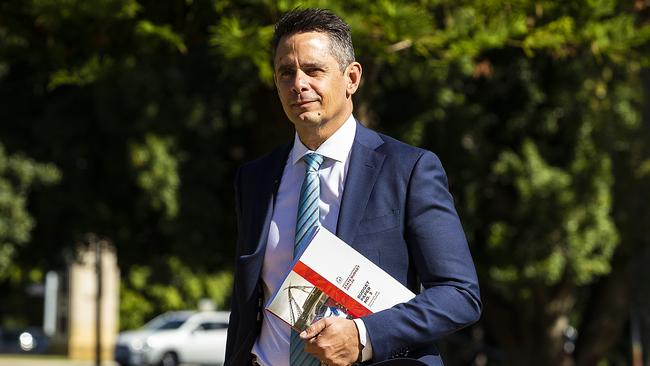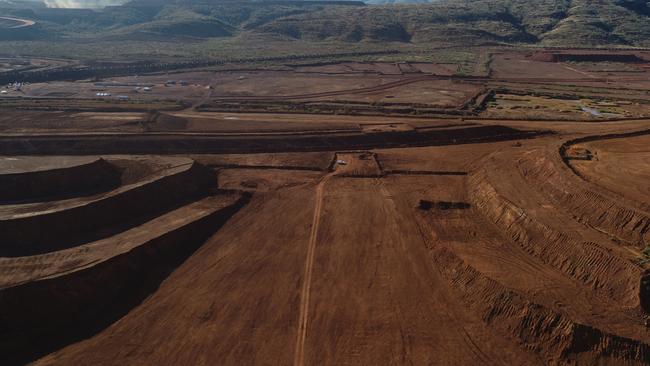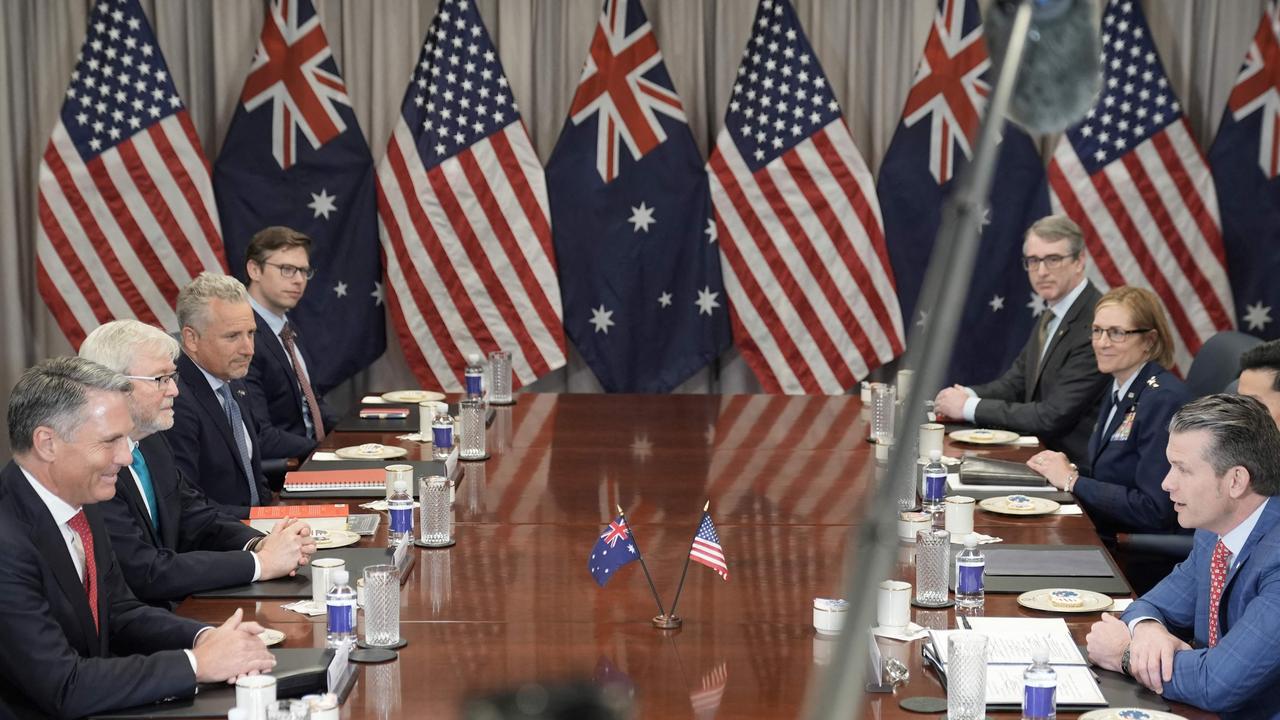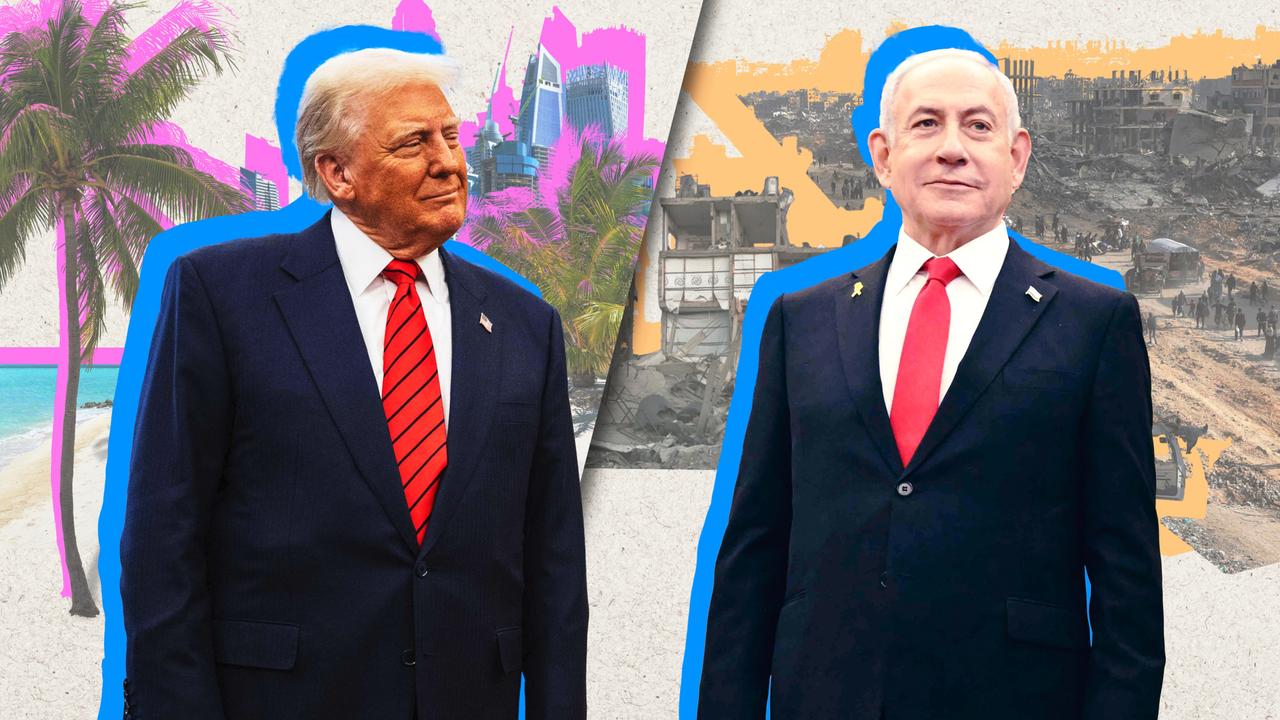WA budget: iron ore prices, GST top-up help state reach surplus
The WA budget has roared back to surplus thanks to surging iron ore prices and a top-up in GST revenues.

The Western Australian budget has roared back to surplus thanks to surging iron ore prices and a top-up in GST revenues.
WA treasurer Ben Wyatt this afternoon confirmed the state had recorded a $553 million surplus for this financial year, a sharp turnaround from the almost $1 billion deficit forecast for the state a year ago.
The return to surplus is the state’s first in five years and comes two years ahead of the Mark McGowan-led Labor government’s original schedule.
There will be some relief for WA households after years of sharp rises in charges and utility costs. Electricity prices will rise 1.75 per cent this year while the overall basket of government charges will increase by 2 per cent, which Mr McGowan said represented the lowest rise in charges in 13 years.
State debt, which ballooned under the previous Liberal-National government, remains high but is now expected to peak at $39.5 billion.
That, Mr McGowan said, was $4.1 billion lower than forecast when Labor first came to power and made WA the only state in the country where debt is falling.
“I’m not going to be the premier who finishes paying off the Liberal-National debt, but I will be the premier who starts it,” he said.

While Mr Wyatt has emphasised the government’s efforts to keep a lid on spending, the reversal in the state’s fortunes have been primarily driven by the spike in iron ore royalties.
A year ago, WA was expecting an average iron ore price of just over $80 a tonne based on commodity price and exchange rate forecasts at the time. Today, following a sharp rise in iron ore prices after the Brumadinho tailings dam collapse in Brazil and a fall in the value of the Australian dollar, the benchmark iron ore price is sitting at around $128 a tonne.
WA will also enjoy a $434 million top-up in GST in financial 2019 as the first step in putting a floor under the portion of GST receipts retained by the state.
Despite the improved state of the finances, there will be no relief for public servants hoping for a pay rise.
Salary increases have been capped at $1,000 per worker per year since Labor came to power in 2017 and Mr Wyatt said the cap would remain for this term of government.
Mr Wyatt said the government would remain disciplined in the face of the iron ore and GST windfalls, noting that Treasury is anticipating a sharp pullback in iron ore prices in the years ahead.
Iron ore prices which currently sit at almost $US90 a tonne are expected to average just $US66 a tonne by 2021, after the treasurer adopted more conservative assumptions than its conventional methodology would have projected — potentially leaving what he said was some “upside risk” for next year’s budget.
“We have received an unexpected boost to our iron ore royalties this year as a result of a global supply shock from the trade Vale tailings dam incident in Brazil, which has seen the iron ore price spike by around $US20 a tonne since January,” Mr Wyatt said.
“However, to ensure we avoid the mistakes of the previous government, we have not budgeted on the assumption that these high prices will continue.”
He also warned of global economic uncertainty, including slower growth in Europe and Japan and an unwinding of the fiscal stimulus in the United States, which could impact on global growth and demand for WA’s exports.



